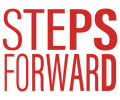|
Introduction
|
|
Reflecting on the kind of training that is required, and with the insight gained from facilitating inclusion in the post secondary education sector since 2001, it became clear that there exists a gap in our work. We are failing to explain the ‘why’ behind the tools we use to facilitate inclusion. Staff who have an understanding of the ‘why’ have said that they gained it through a combination of experience, personal values, and iterations of conversations about deconstructing the norms and expectations society has for people with intellectual and developmental disabilities.
The work of facilitating inclusion is countercultural. Pursuing an inclusive life requires students to live outside of the normative pathways that are provided for people with disabilities. Countercultural work requires self awareness and reflection. Irrespective of experience or expertise in the field of disability, the majority of professionals are unable to recognize the stereotypes and segregation that are practiced today and which pervade the support of people with intellectual and developmental disabilities. For many, segregation and congregation is the right thing to do for people because of their disability. We feel that being informed about the history and context that has created this dominant societal view, is a first step in supporting staff in being aware of when they may themselves be unintentionally replicating historical patterns and reinforcing stereotypes.
The following guide borrows from several theories and training methods that have been developed through social movements and social justice training, starting with anti-oppressive practice. The anti-oppressive module is designed to help staff be aware of their position of power over students, and to think about the systems of inequality within society that we are seeking to disrupt with inclusive post-secondary education. Anti-oppressive training, as well as the other topics covered, help us to think about how the day-to-day pieces of our work connect to the larger picture of changing society to think differently about the meaning of intellectual and developmental disability. We also draw on some facilitation tools from these disciplines that can be directly applied to working with allies and navigating challenges, while pushing the boundaries of inclusion.
As mentioned above, self-awareness and reflective practice are particularly important in work that is countercultural. Embedding reflection into daily practice supports facilitators to think critically and dynamically and safeguards against unconscious beliefs or practices that can impede inclusion. The guide also introduces theory from the field of disability studies that looks at inclusion and exclusion using a critical lens. This theory articulates a vision for what an inclusive life means and how to support people to make it a reality. We understand and respect that learning about inclusion is an ongoing process. Staff are not expected, in fact, are actively discouraged from, reading these modules and assuming that they can now tick a box that says they have learned “how to” be a facilitator. This information is intended to provide a foundational critical perspective for staff to build on in their day-to-day practice. These conversations will be revisited often at regular regional meetings, with families, and with staff; when we learn from each other, our mistakes, and gain insight into the work that still needs to be done to bring communities along to embrace inclusion in natural ways. Next: Vision
|
